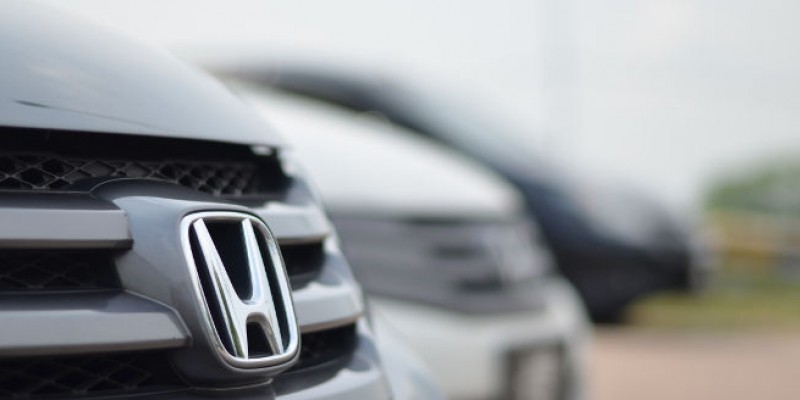
I recently interviewed Patrick Keating - Government Affairs Manager to find out how Honda is preparing for Brexit.
Describe your role:
My main role is to support the European business in understanding political developments at EU level. I am also responsible for relationships with the UK government and stakeholders, with local MPs, MEPs and also with central government departments.
The role is to understand the effect that the political process has on the business. And of course Brexit is the major political issues of the day.
What is the Honda view on Brexit?
The first thing to say is that Honda remains committed to its operations in Europe and the UK. Honda has been in this country since 1989 and in Europe since the early 1960s, so there is a lot of investment that has gone into our operations in Europe and in the UK. So, Honda is commited and we need to find the right conditions for our business.
What we need to have is clarity in four main areas. The first one is around people. A large portion of the workforce at our Swindon factory, and here (at our EU HQ in Bracknell) are European Nationals.
We call on the EU and UK to protect the rights of citizens living on both sides of the channel, and to enable businesses such as Honda to be able to access talent from Europe. Linked to that is the ability to move people from this country to Europe. This is our European head office and we are moving people around the piece on a daily basis. So, how do we manage to operate that European business without having restrictions? Any future immigration system in the future needs to support our ability to attract people at all skill levels.
Tariffs are another piece of the Brexit jigsaw - a large proportion of production at Swindon goes into the European Union and a significant number of thecomponents used in the factory at Swindon are sourced through the 27 countries of the EU. Any future trade deal following Brexit should be on a zero tariff basis. I think we can be fairly confident that is what both sides would want to achieve.
The next piece in the Brexit jigsaw is around regulatory alignment. The UK is an important market but this operation (the Swindon plant) services the whole European market, and Honda has benefited from complying with one set of regulations and standards across the EU. If the UK leaves the Single Market, then the administrative burden will increase, as we will need to generate documentation to demonstrate that – for instance – cars exported from the UK to the EU meet all European standards.
The fourth point is Customs and the border. A significant proportion of components for the Swindon factory are sourced through the European Union – that equates to over a million product movements per day.
90 per cent of that is coming in on ferries or through the Eurotunnel.
We have a supplier in almost every member State who is making something for us. A lot of that is centralised in our logistics operation Ghent - we are operating - as do all automotive manufacturers - a just in time system which means we hold about an hour’s stock lineside.
The risk is that if there is not a solution for the border which ensures frictionless trade, it would have a knock-on effect on our ability to smoothly operate the production lines.
Is this the biggest hurdle you face?
When you look at the challenges that are there, this is probably one of the biggest and one of the most important to get right very quickly.
What is your personal view about the Customs Union?
My personal view, is that leaving the Customs Union would be a significant change that would risk the imposition of costs – through both an increase in administrative burden and the potential introduction of tariffs on imports and exports to the EU - and disruption to our just in time manufacturing model due to friction and delays at the border.
Some might say that attitude could be considered a little selfish as the Prime Minister has said the government is committed to leave the Customs Union.
Our analysis is that remaining in the Customs Union is the best way to maintain the productivity and competitiveness of the UK car industry. While we have looked in detail at the proposed MaxFac and NCP options, our positon is that continued customs union membership remains the best option for the UK and UK based businesses.
Do you see there is any way that the government will agree to stay in some sort of Customs Union?
There are a number of MPs who are speaking up about the benefits of remaining in a Customs Union with the EU, and who could steer the government in this direction.
What is your big thing about Brexit at the moment?
As I mentioned there are four key areas we are looking at, but clarity on future customs arrangements would allow us to plan for the future with more certainty.
Where is the vision for Honda and electric vehicles?
By 2025, Honda is committed that two thirds of our sales in Europe will feature an electrified power train, which will include hybrid and battery electric options. It’s great that the government is looking to encourage electrification but we must ensure they do it in a technology neutral way. Most manufacturers are looking at electrification and the technology is proceeding apace. There still needs to be some breakthroughs in battery technology, and we all need to be careful that batteries do not have unintended environmental consequences.
Do the government get your lobbying - are they really taking you seriously?
Yes - the government is listening and I think they are hearing. You can see that in a lot of the statements and the speeches and publications coming out that the role and the importance of the automotive industry is recognised. The needs of the industry are recognised and the complexity around supply chains are recognised.
How satisfied are you with the government’s industrial strategy?
I think the industrial strategy published a number of months ago is quite useful in a lot of ways. It recognises the importance of the industry to put in place investment in skills - that is a big challenge not only for automotive industry but for a range of industries coming down the line. It recognises the need to invest in things like battery technology and infrastructure.
What about Honda and apprenticeships and the development of skills - particularly in Swindon?
Our general approach is to recognise the importance of lifelong learning. A lot of the people in management positions in the factory started on the line and have been given the opportunity to work their way up.
There is a lot of work being done around apprenticeships and the number has doubled. Those are recruited internally and externally. There are a lot of challenges around skills still and having the right people coming out of the local community.
I think there is some improvement work to be done around education in the area making sure schools are generating people with the right skills in terms of numeracy and literacy and the ability to work in a very structured environment.
One of the successes of Swindon as a town is that it has very low unemployment – there are many great employers in the region – but this also means we have a very shallow pool of people to draw from at short notice.
How important is community engagement to you?
Massively important. Honda is a company with a motto which says it is company that society wants to exist. To do that you have to be a good corporate citizen. We work with local charities, get involved with local schools - it is a very important part of what we do.
We are making a positive social contribution to improve tomorrow and wish to make sure we make a positive social impact on the local community whether it is improving people’s mobility of their ability to live.
In Europe, it is about cars and bikes but if you look at what Honda is doing globally, there is a lot of work going on in robotics and how robots can assist people.
A lot of that leading edge stuff happens in Japan, but we hope to see some of these interesting technologies rolled out globally in future.
Would that come to this country?
In time perhaps, it all depends on where the market is.
What’s the big challenge for Honda at the moment - aside from Brexit?
Electrification and automation is a significant change point for the industry.
I think there is going to be a huge change in the way that people use vehicles and the way they are built and how vehicles will be regulated. There is also a big question about data so as cars become more connected, we will use more data and share more data in the current climate - how are we then going to handle this and operate efficiently.
- Log in to post comments

